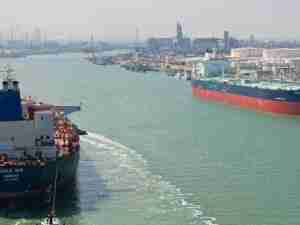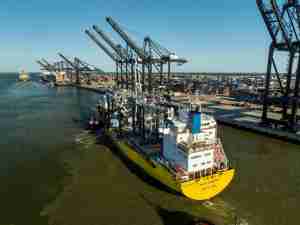The world's top oil producer and fifth largest coal exporter currently ships a large proportion of its energy resources to foreign buyers via neighbouring countries due to domestic port limitations.
"The market is demanding more terminals in light of increasing coal and oil product export demand. We currently export what we can't ship by rail to the Baltic states and Ukraine," Olersky said.
Demand for commodities is increasing as the global economy recovers, adding urgency to Russian port development plans which were delayed during the downturn.
Trading giant Gunvor put the launch of what is slated to become the country's largest oil products terminal in Ust Luga, on hold for more than a year.
Olersky said even when this port and another facility in Murmansk are completed, Russia will still not have sufficient facilities to meet demand.
Russia plans to build an onshore terminal in Murmansk to export crude from the Arctic. "We will also need new ports on the Black Sea and the Taman Peninsula," Olersky said.
Russia will construct a new port on the Taman peninsula on the Black Sea with a capacity of loading 50-60 million tonnes of dry cargo per year to create a new outlet for Russia's exports, Olersky said.
"Companies are excited about this new deep-sea port because of our current lack of loading capacity. The volumes, coal for example, that are exported via Ukraine will go there instead," he said.
The Taman port will load metals, sulphur, fertilizers and possibly chemicals.
Russia's state-run grain trader, the United Grain Company (UGC) also plans an 8 million tonne terminal on Taman, capable of handling 36,000 tonnes of grain per day. (Reuters)










